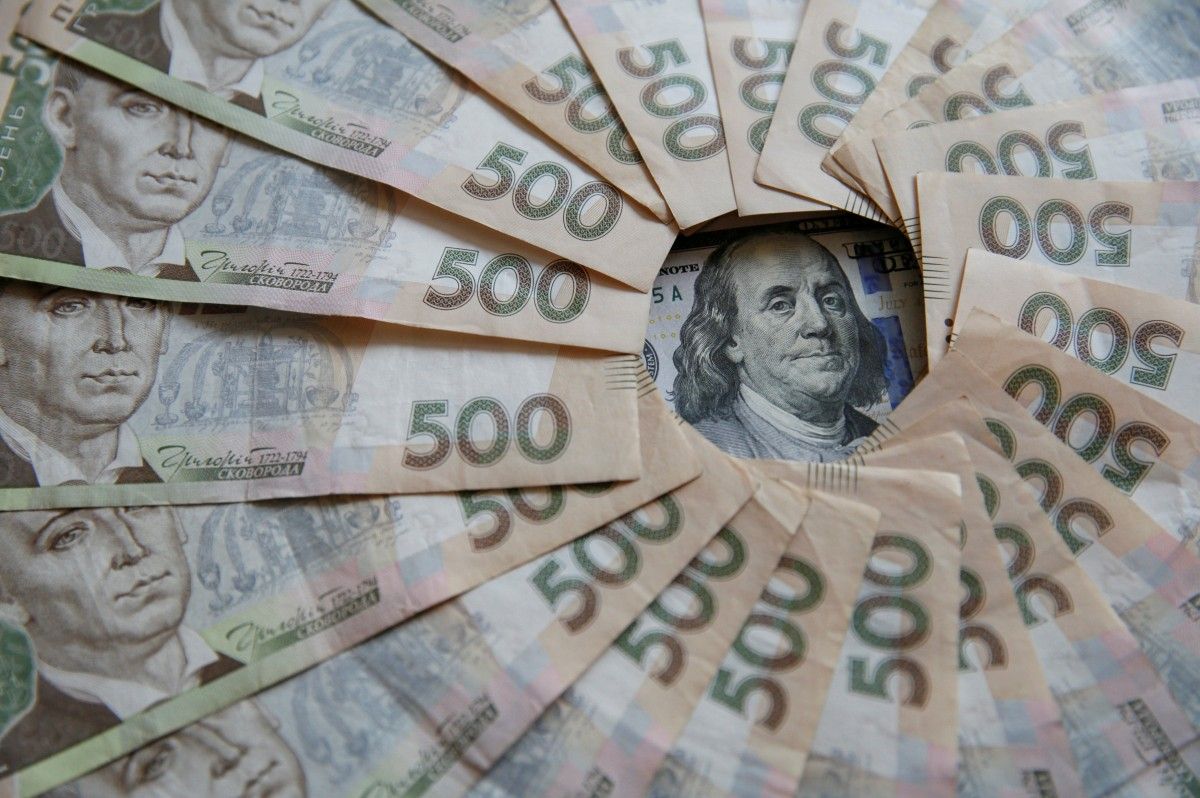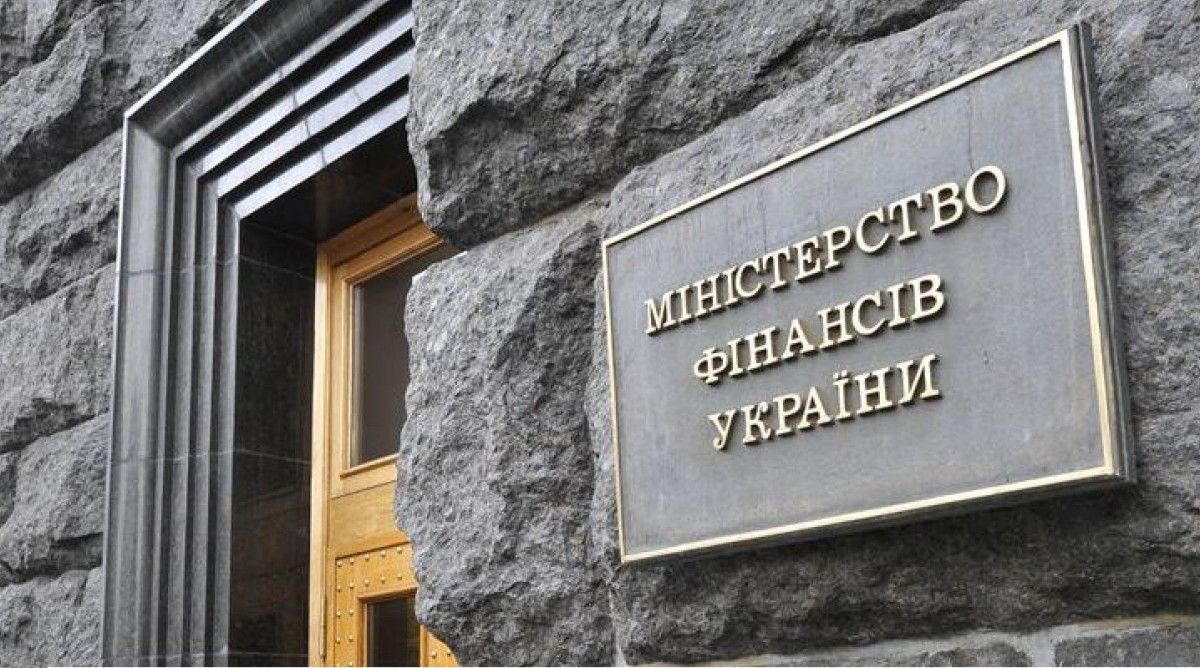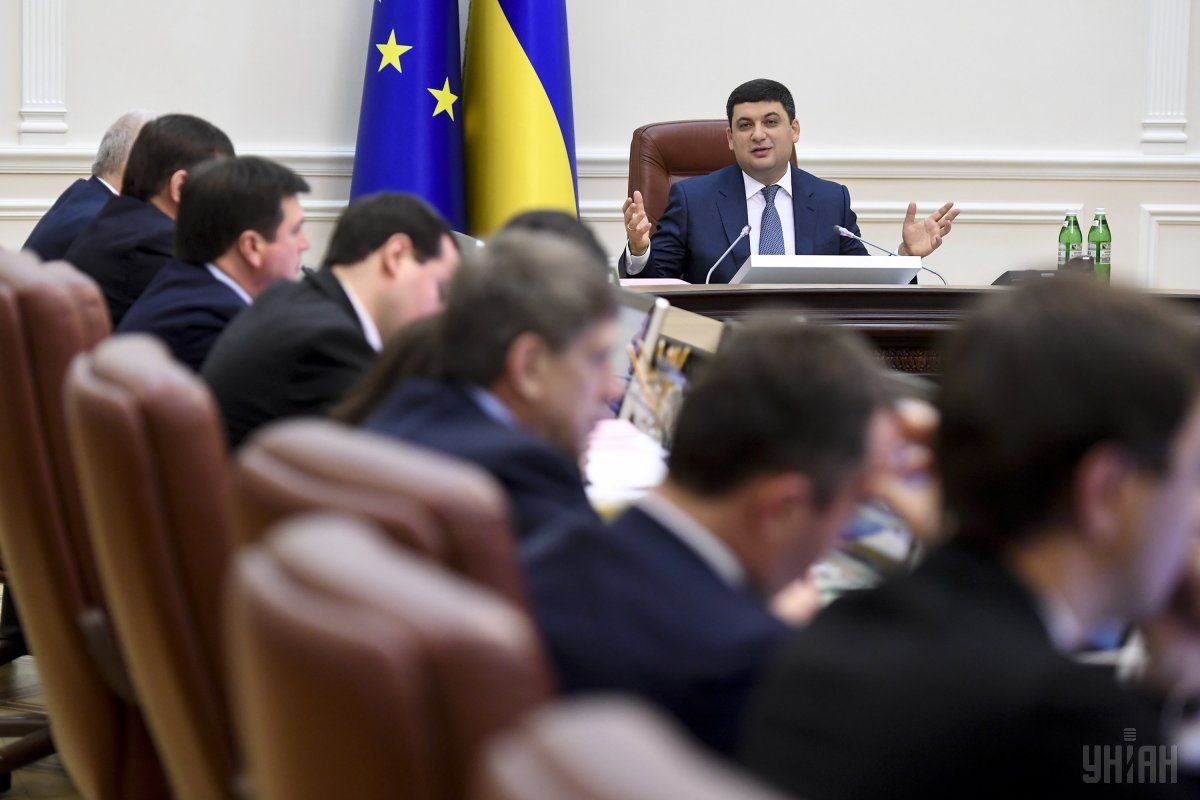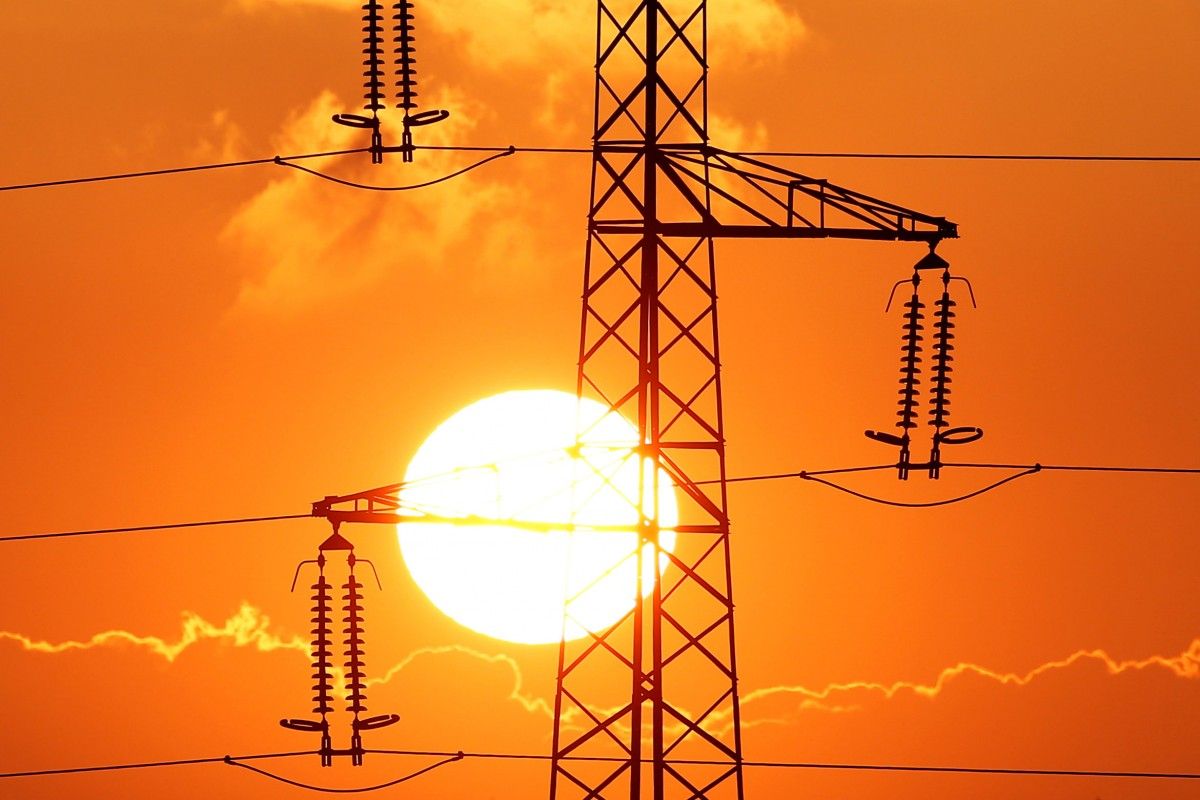
Week’s balance: Yanukovych's "gift," blackout of occupied Donbas, and hryvnia strengthening
The funds totaling $1.5 bln seized from accounts of ex-president Viktor Yanukovych and his entourage are being transferred to the state budget; Ukraine cut off electricity supplies to the areas of Luhansk region occupied by Russian-supported militants; while Ukraine’s exports strengthened the national currency, hryvnia - these are the main economic events of the past week.
The major news of the past week, and, possibly, the whole of April, was the court decision to transfer to the state budget of Ukraine some $1.5 billion, arrested in the accounts of former president Viktor Yanukovych and his team. The decision took effect on April 28, and on the same day the management of the state-owned OschadBank where the funds were located, proceeded to implement the court ruling and began to the transfer of funds to the state account, along with the State Treasury.
The money stolen by the kleptocratic regime of Viktor Yanukovych will be used to strengthen the combat capacity of the Ukrainian army, infrastructure, and social projects.
The Head of State, Petro Poroshenko, intends to submit to parliament a proposal to allocate the funds for the construction of an ammo factory, purchase of the hi-end electronic warfare equipment, counterbattery radars, modern drones, as well as for constructing dorms for contracted troops and military hotels for officers at the premises of each brigade. Also, part of these funds will be channeled to provide social support to the least protected layers of the population through rural healthcare system development projects and infrastructure programs.
At the same time, Poroshenko stressed that the confiscation of Yanukovych's "stash" is not the last decision on stolen funds recovery. The money of corrupt former Ukrainian officials will continue to be returned to the state budget, according to the president.
Export pushes hryvnia upwards

In the past week, the hryvnia to the dollar rate continued to strengthen, reached its four-months' peak at UAH 26.53 to the dollar, marking a 10-kopiyka raise in one month and more than a 70-kopiyka growth since year-start.
The trend allowed the National Bank to enter the interbank market with foreign currency auctions twice over the last week, purchasing almost $76 million to increase its gold and foreign exchange reserves.
Hryvnia strengthening is due primarily to the growth in foreign exchange earnings of exporters and the stable inflow of currency into the country. In particular, according to the forecasts of the National Bank, exports of goods from Ukraine in 2017 will begin to grow and amount to 11.2% in annual terms, for the first time since 2012, due to further price increases in commodity markets. Ore prices will grow most in the structure of exports (by 41%) due to the release of additional volumes as a result of the termination of shipments to steel-making enterprises located in the occupied areas of Donetsk and Luhansk regions. Also, the export of food products will grow by 8.6% due to the supplies of sugar and other food products against the backdrop of the development of new markets in Asian countries, mastered in 2016, and the increase in grain exports. In addition, export of machine building products is expected to increase due to the gradual reorientation of exports that were previously flowing to Russia.
According to Prime Minister Volodymyr Groysman, in 2017, exports began to show signs of growth and could ensure sustainable development of the economy provided strategic support for export industries in the global competition.
Ukraine can increase its export potential through close cooperation with China, the world's second most powerful economy. Both countries intend to intensify cooperation on projects in the fields of agriculture, energy and infrastructure.
China plans to create the first Chinese modernized agricultural park in Ukraine, as well as hold the Ukrainian-Chinese agricultural forum in Beijing in September, and then another one in Kyiv.
Such cooperation will allow Ukraine to export not only agricultural raw materials but also processed products.
"The most important thing is to change the type of our economy. We are determined to ensure the deep processing of Ukrainian agricultural raw materials into finished products," Groysman said at the meeting with businessmen and representatives of the Chinese authorities.
Debt market

Last week, the Ministry of Finance reported on the state of the national debt. In the first quarter, the state and state-guaranteed debt of Ukraine increased in dollar terms by $1.38 billion, or by 1.9%, to $72.35 billion, as of March 31. The total amount of state and publicly guaranteed debt in hryvnia equivalent for this period increased by UAH 22.04 billion, or by 1.1%, to UAH 1.952 trillion.
The growth of debt in the first quarter is primarily due to loans on the domestic market. Until the end of the year, the government forecasts that the national debt will rise to UAH 2,296 trillion, through the obtaining of loan disbursements from the International Monetary Fund, as well as in connection with Kyiv’s plans to enter international borrowing markets.
Meanwhile, the past week, one of the largest private holders of Ukrainian Eurobonds, the U.S.-based Franklin Templeton, reported it was reducing its investments in Ukraine’s sovereign Eurobonds.
The volume of Franklin Templeton’s investments in Ukraine’s sovereign debt last year fell by half - to $1.2 billion, or down to 3% of the total portfolio.
Franklin Templeton became the largest private creditor of Ukraine in 2013, investing some $7 billion, and in 2015 it headed the creditors' committee in debt restructuring negotiations with the Ukrainian authorities. Experts note that the reduction of the fund’s investments in Ukraine indicates the continuation of the investor's reorientation from Europe and Asia to Latin America.
The Ministry of Finance considers the sale of Ukraine’s sovereign Eurobonds by one of the largest private holders a confirmation of high liquidity of these securities.
Reform of ministries

The government announced plans to reform 10 out of 18 ministries in order to improve the functioning of the civil service. In the past week, the Cabinet approved the corresponding concept.
The wind of change will sweep through the cabinets of the ministries of social policy (the main focus is pension reform), healthcare (healthcare reform), agrarian policy (land reform), education (education reform), finance (financial support for reforms), regional development (decentralization), energy (energy sector development), infrastructure (infrastructure development), the Cabinet of Ministers (coordination of public administration reform), and justice (introduction of modern legal practices).
The first stage of the reform process at the ministries is scheduled to have been completed by September. At the second stage, other agencies will be transformed.
According to government estimates, the reform of ten ministries, which by autumn will have to change their structure, as well as attracting new personnel to public administration, will allow for the qualitative implementation of key reforms (pension, land, healthcare, and education) as well as carry out privatization.
The European Union declared its readiness to continue supporting the reform of the civil service in Ukraine in the case of the government's commitment to a qualitative improvement in the work of state bodies. In 2016, the EU launched a program to support the reform of the civil service in Ukraine worth EUR 104 million for the period from 2016 to 2020, of which EUR 90 million will be allocated for direct budgetary support to raise the salaries of officials.
Luhansk blackout

In the past week, the areas of Luhansk region occupied by Russia-supported militant forces were cut from Ukrainian electricity supplies as a result of multi-billion debts to providers.
"We received papers from the state-owned Energorynok [wholesale buyer and seller of electricity], which are confirmed by documents from the Ministry of Energy signed by Minister Nasalik that from April 25, electricity supplies to the uncontrolled side will be completely halted. Now we are carrying out technical measures, and from 00:00 on April 25, the supplies should be completely cut," said Volodymyr Gritsai, CEO at Lugansk Energy Association.
According to Ihor Nasalik, who is the Minister of Energy and Coal Industry, power supplies to the occupied part of Luhansk region can be resumed if payments are made and debts for electricity are paid off.
The minister also admitted that Ukraine mulled halting water supplies to the occupied territories of Donbas. This is due to the fact that these areas are in arrears in payment to the Ukrainian water utility services, as well as due to the lack of anthracite coal supplies to the stations providing water to the region.
According to experts, from the economic perspective, this measure should have been taken even earlier as militant leaders appear to have made profits from Ukraine’s generosity. At the same time, from the political and humanitarian point of view, this could be a step back in relations with the residents of the occupied territories.
During this week’s traditional celebrations of May holidays, it is likely that the economic news will be somewhat back-shelved. Nevertheless, the beginning of May will be marked by a number of important events. From May 1, the subsistence minimum and minimum pensions will increase in Ukraine, on May 4, a trial in absentia will begin against fugitive ex-president Viktor Yanukovich on high treason charges, while foreign tourists will start flowing into Kyiv which hosts this years’ Eurovision international song contest.
Ksenia Obukhovska

